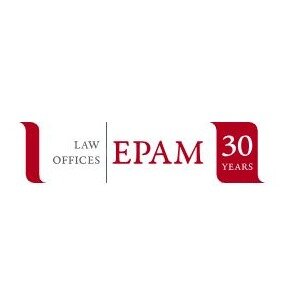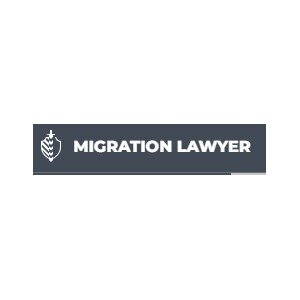
Best Permanent Residency Lawyers in St Petersburg
Share your needs with us, get contacted by law firms.
Free. Takes 2 min.
List of the best lawyers in St Petersburg, Russia


MIGRATION LAWYER

Ano Madad
About Permanent Residency Law in St Petersburg, Russia
Permanent residency in St. Petersburg, Russia, refers to the legal status that allows a non-Russian citizen to reside indefinitely within the Russian Federation. Acquiring a permanent residence permit (PRP) is a step forward for those who have already been living in the country with a temporary residence permit (TRP) and are seeking long-term settlement. The PRP grants broader rights, such as the ability to work without obtaining a separate work permit, enrol in the state healthcare system, and eventually apply for Russian citizenship.
Why You May Need a Lawyer
Legal advice is crucial when dealing with the intricacies of immigration law, particularly concerning permanent residency in St. Petersburg. You may need a lawyer if you are uncertain of the application process, requirements, or deadlines. Additionally, legal assistance may become necessary if your application has been refused, if you are appealing a decision, or if you need guidance on compliance with residency obligations to maintain your status. Lawyers are also valuable in navigating the complex bureaucracy and providing representation during legal proceedings related to your residency status.
Local Laws Overview
The legal framework governing permanent residency in St. Petersburg falls under the federal immigration laws of the Russian Federation. Key aspects include the requirement of a temporary residence permit before applying for permanent residency, adherence to strict application windows, and the need for a demonstrated ability to support oneself financially without recourse to public funds. Aspects such as quotas for foreign nationals, proper registration with local authorities, and the understanding of rights and responsibilities under the PRP are essential.
Frequently Asked Questions
Q1: How long does it take to get permanent residency in St. Petersburg?
It typically takes around six months from the time of application, but this period can vary based on individual circumstances and the current workload of the Russian migration authorities.
Q2: What documents do I need for a permanent residency application?
Essential documents include a valid temporary residence permit, passport, proof of income, proof of accommodation, health insurance, and a clean criminal record. A detailed list should be obtained from the local migration office or a legal adviser.
Q3: Can I work with a permanent residence permit in St. Petersburg?
Yes, a permanent residence permit allows you to work in Russia without needing a separate work permit.
Q4: How long is a permanent residence permit valid in Russia?
A permanent residence permit is initially valid for five years and can be renewed indefinitely.
Q5: Am I eligible to apply for citizenship after obtaining a permanent residence permit?
Yes, you can apply for Russian citizenship after five years of continuous residence in Russia with a permanent residence permit.
Q6: Can my family members also get permanent residency?
Family reunification provisions do exist, which may allow your close family members to also apply for permanent residency.
Q7: Do I need to renounce my current citizenship to obtain permanent residency?
No, obtaining a permanent residence permit in Russia does not require you to renounce your current citizenship.
Q8: How do I renew my permanent residence permit?
You must apply for renewal at least six months before the expiry date at the local office of the Federal Migration Service.
Q9: Can I lose my permanent residency status?
Yes, your permanent residency status can be revoked if you violate Russian laws, are absent from the country for an extended period without a valid reason, or if you fail to comply with the renewal requirements.
Q10: Is it possible to have permanent residency in multiple countries?
Laws vary by country, but holding permanent residency in more than one country is possible under certain conditions. However, it's important to consider the implications for taxation and military service obligations.
Additional Resources
For those seeking legal advice on permanent residency in St. Petersburg, the local office of the Federal Migration Service (FMS) is the primary governmental body responsible for processing applications. Additionally, non-profit organizations and legal aid societies may provide assistance, and the Russian Ministry of Foreign Affairs can supply information related to immigration laws and treaties.
Next Steps
If you need legal assistance with permanent residency in St. Petersburg, start by gathering documentation related to your stay in Russia, such as your current visa or temporary residence permit. Then, consult with a reputable immigration lawyer or law firm specialized in Russian immigration laws to discuss your situation, understand the legal options available, and develop a strategy for your application or any necessary appeals.
The information provided on this page is intended for informational purposes only and should not be construed as legal advice. While we strive to present accurate and up-to-date information, we cannot guarantee the accuracy, completeness, or currentness of the content. Laws and regulations can change frequently, and interpretations of the law can vary. Therefore, you should consult with qualified legal professionals for specific advice tailored to your situation. We disclaim all liability for actions you take or fail to take based on any content on this page. If you find any information to be incorrect or outdated, please contact us, and we will make efforts to rectify it.


